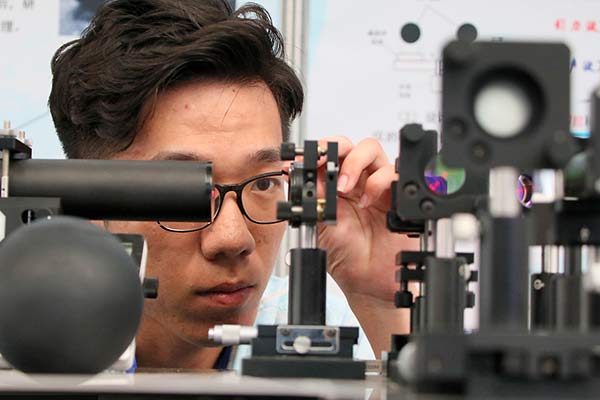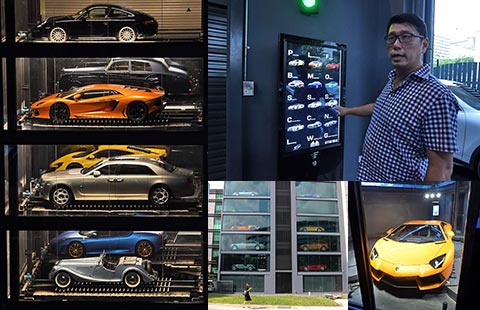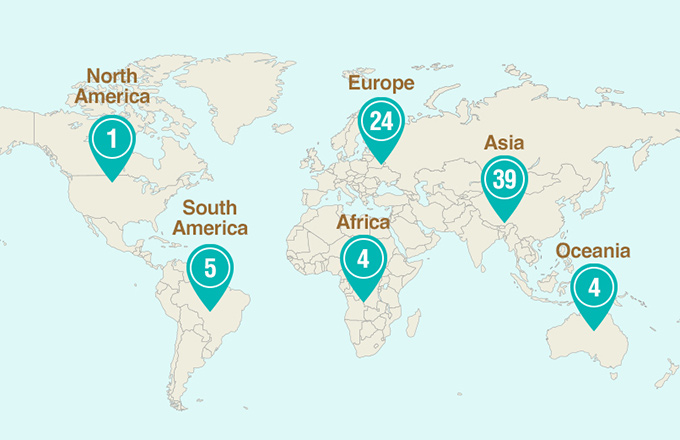Villagers may hold the key to drive rural auto boom
During the Spring Festival holiday in early February, I spent a few days at my home village in Henan province in Central China, and happily noticed how much the village and its residents have changed.
The villagers were traditionally known for the virtues of toiling and saving, among others, and actually they still are in some sense. However, their perception of thrift has somewhat changed with their growing exposure to the outside world, particularly among the younger generation, as they are not only more capable of making money, but are more ready to spend.
This change has been evidenced in the sudden surge in the number of automobiles they now own and drive.
Three years ago, one of my nephews, who was then running a small private kindergarten, was the only one to own a van and was much envied among fellow villagers. But in just three years, it seemed that cars have emerged out of nowhere. During the festival, I learned that the number of vehicles had risen to 15 in the village, which is home to around 120 families. My fellow villagers said that the most popular automobiles are less-expensive models of vans and SUVs, which on average cost around 100,000 yuan ($14,500) or less.
My village may not be typical enough to represent the countryside, but it could at least be a telling sign pointing to a growing rural auto market, particularly in the grain-producing central region of the country.
From one to 15, this is remarkable progress, and the number is still growing.
But compared with the national average of 36 vehicles per 100 households at the end of 2016 according to the National Bureau of Statistics, this means there is huge growth potential in automobile ownership in my home village and probably the entire countryside. And the rising disposable income of rural residents, as well as the growing desire of the younger generations for better and more convenient lives, are encouraging villagers to catch up.
There are good reasons for this growth.
With rural residents opting to go to cities for permanent or seasonal employment, they are now financially capable of affording a car. Also, the conditions for vehicle use in the rural areas have improved. The roads are better, mainly cement and asphalt, or at least with a hard surface. Gas stations, mostly small and private ones, have sprouted along the roads, and I noticed that more were under construction along the roads and in the towns on my way home. Vehicle repair and maintenance services have also become more readily available.
The improving conditions for motorists bode well for auto sales in rural areas. Furthermore, the government's strategy of building a consumption-driven economy is also fueling the growth of rural auto sales.
In the period from 2009 to 2010, the government introduced a policy of providing incentives to buyers in a bid to stimulate rural automobile purchases. The results were very encouraging: 13.65 million vehicles were sold in 2009 in the country, surging 46.15 percent year-on-year, This trend continued in 2010, making China the world's largest auto market.
And now the China Automobile Dealers Association, which sees the potential of the rural market, is calling on the government to reinstate such a policy to reinvigorate and boost rural auto purchases.
Actually, as a growing number of cities, particularly big ones such as Beijing and Shanghai, as well as provincial capitals, have imposed curbs on car purchases, the vehicle sales growth there has been slowed, forcing automakers and dealers to seek new growth engines from the vast rural market, which still has massive growth prospects.
China is by far the world's largest car market, and automakers the world over are betting their future on the country. Now they are shifting gear toward China's rural areas, which could probably become the next big thing for automakers and the auto industry.

























